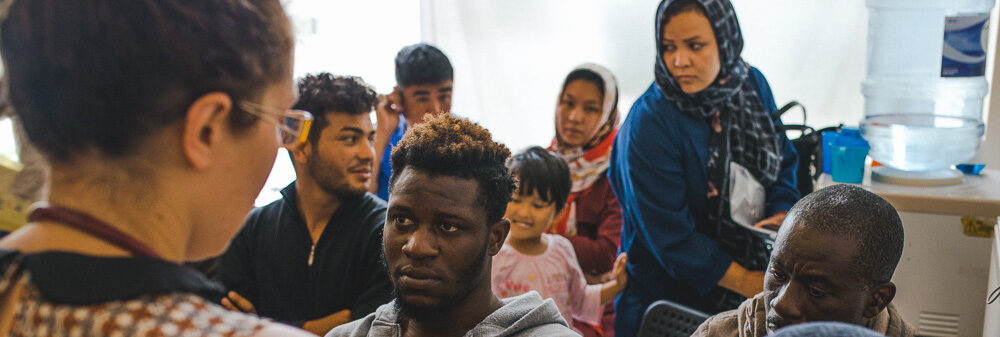A survivor of multiple forms of SGBV is reunified with her adult son in France, after six years in Greece and five negative decisions on her asylum claim.
Having faced continuous persecutions based on her gender (female genitale mutilation, forced marriage, domestic violence) and suffering from HIV, Aisha was forced to flee from her country of origin, Côte d’Ivoire. She traveled to Turkey and she arrived on the island of Samos, in Greece in 2018, where she applied for international protection. As a vulnerable applicant, she was then transferred to Thessaloniki, where her application was examined under the regular procedure. Her asylum request was rejected both at first and second instance by the authorities.
After this rejection, she underwent a Victim Of Torture (VOT) identification process. The elements of her story, in particular the fact that she was subjected to Female Genitale Mutilation (FGM) at a very young age, led to her certification as a VOT. On the basis of this new element, she submitted a subsequent application to the Regional Asylum Office of Thessaloniki, which was also rejected on the merits in the first and second instance. According to the Asylum Office and later the Appeals Authority, there was no reason to protect the applicant, as neither the FGM nor the domestic violence constituted persecution. Following the rejection decision issued by the Regional Asylum Office of Thessaloniki, Equal Legal Aid took over the case and lodged an appeal against this negative decision and later on, a request for annulment before the Administrative Court of Thessaloniki.
While awaiting the decision, supported by Equal Legal Aid, Aisha applied for family reunification on humanitarian grounds with her eldest, adult son, who is legally residing in France. After a rejection by the French authorities and a request for re-examination from the Greek authorities, Aisha’s request for family reunification was finally accepted. In December 2024, one and a half years after her initial application for family reunification and six years after arriving in Greece, Aisha finally travelled to Paris.
The approval of the family reunification request is a rare occurrence within the context of the Dublin Regulation, as it pertains to two adults who are not spouses. It seems that the applicant’s health condition, particularly her status as HIV positive, had a critical influence on the decision. Despite this positive outcome, it is necessary to highlight the inability – inefficiency – of the Greek asylum authorities (both the Asylum Service and the Appeals Authority), as well as asylum judges of the Court to adequately protect the survivor of multiple forms of gender-based persecutions and an HIV patient. Indeed, while her family reunification request was processed by the French authorities, her request for annulment was rejected by the Administrative Court of Athens. The grounds for protection included being a survivor of domestic violence and female genital mutilation, which were deemed credible by the asylum authorities. However, the asylum services, the appeals authorities, and later on the Administrative Court of Athens all concluded that these did not constitute a well-founded fear of persecution as:
Having already undergone female genital mutilation, she was no longer at risk. This assumption is widely contradicted by the well-documented practice of this form of torture, as well as negating the long-term psychological and physical consequences;
Given that her abuser was deceased, there were no longer any risks of domestic violence.
The present case is a stark illustration of Greece’s failure to uphold its international obligations under the 1951 Refugee Convention, the Istanbul Convention, and other binding human rights frameworks. Contrary to the extensive body of international law, UNHCR guidelines, and established jurisprudence on gender-based violence (GBV), the Greek asylum and judicial authorities have systematically failed to provide adequate protection to a survivor of multiple forms of SGBV. This case not only highlights the ignorance—at best—or outright disregard—at worst—of the international legal standards by Greek decision-makers, but also reveals a deep systemic failure in recognizing the unique vulnerabilities of survivors of gender-based violence. Aisha’s repeated retraumatization by having to repeatedly recount her horrific experiences to numerous authorities reflects a deeply problematic process that subjects survivors to ongoing abuse. By denying her the protection she is entitled to under both Greek and international law, and forcing her to relive her trauma over and over, the Greek legal system sends a chilling message: that gender-based violence is not taken seriously, and survivors are left to face the same dangers they fled from. This case exemplifies the urgent need for Greece to align its asylum and judicial practices with international human rights standards and to create a system where survivors of gender-based violence are treated with dignity, respect, and, most importantly, protected.




